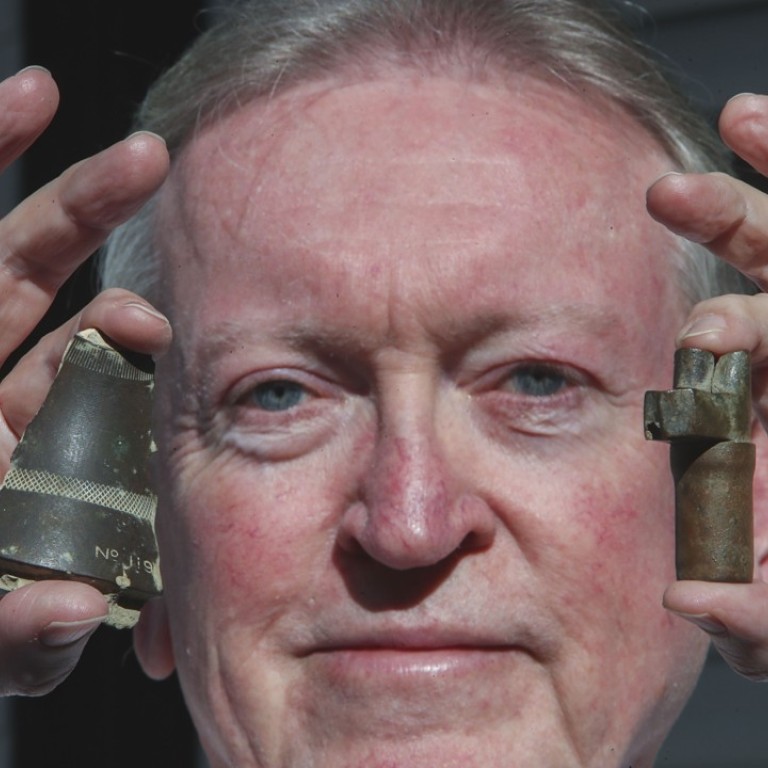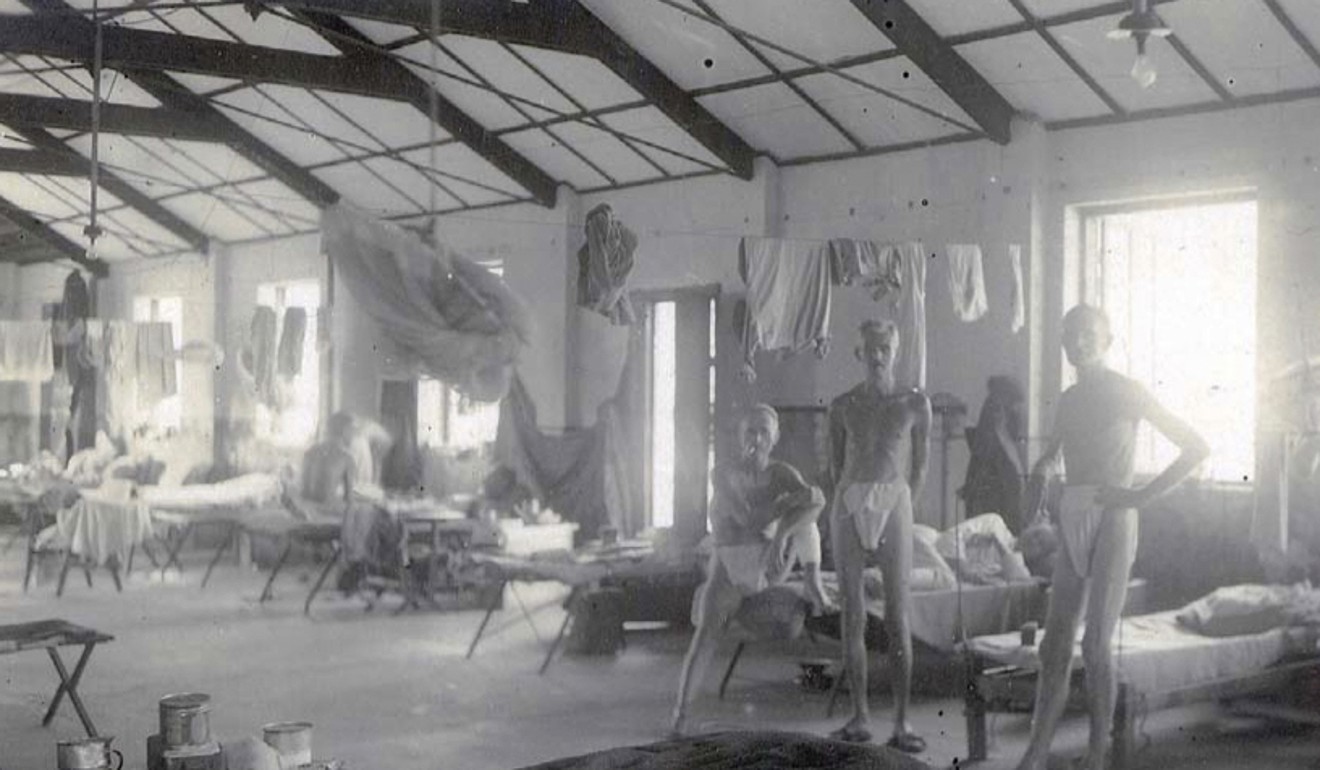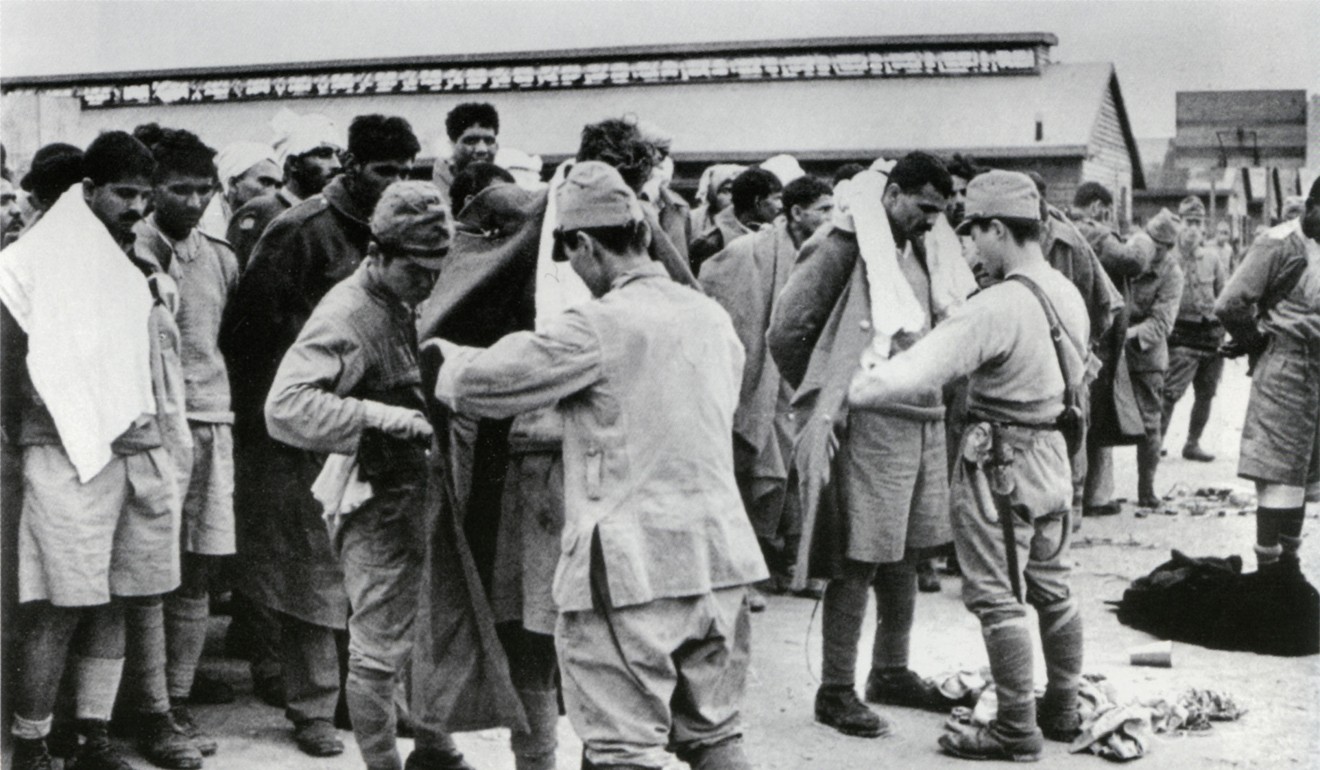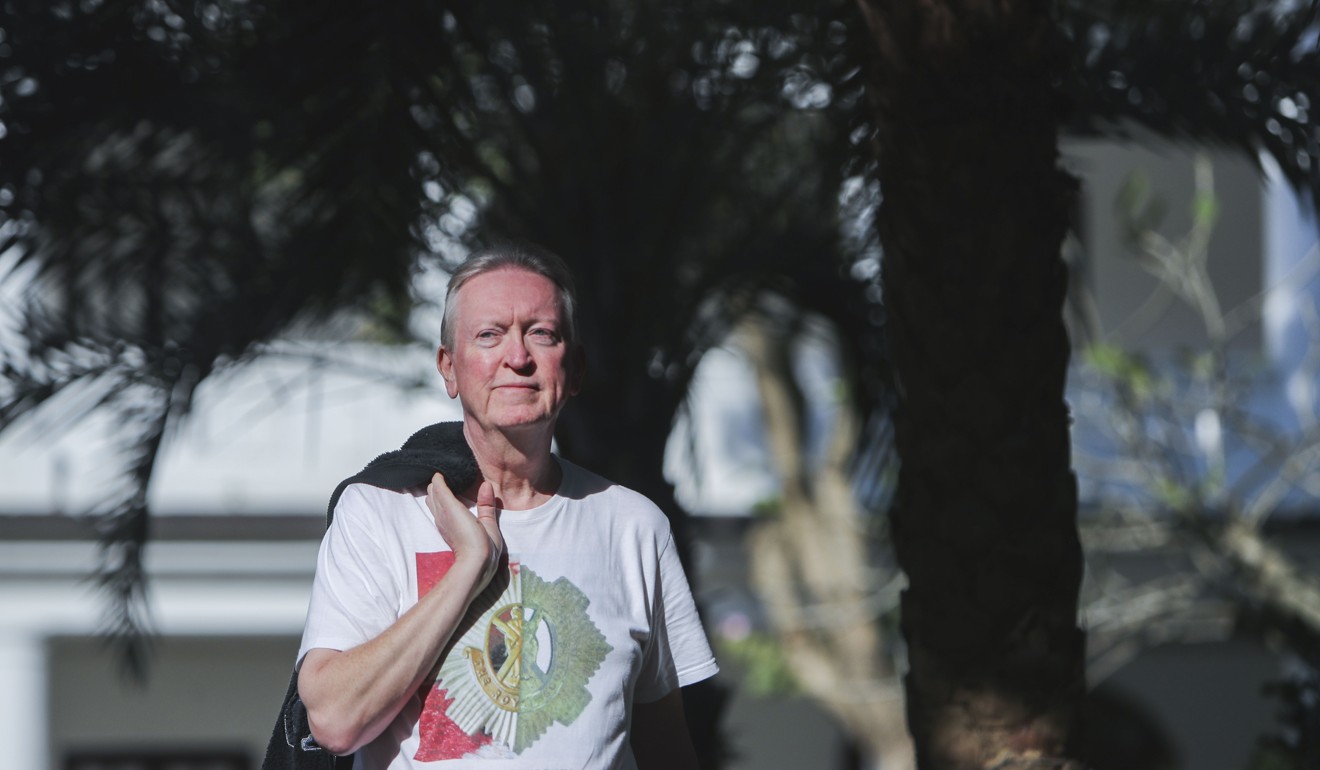
Meet the British historian who puts together stories of Hong Kong’s wartime past
His 30-year archive documents the experiences of the city’s ordinary civilians and soldiers during an extraordinary time
What started as a personal curiosity in Hong Kong history transformed into a passion to share inspiring stories, a desire to preserve the memory of wartime experiences and “put it together before it all disappears”.
This is how historian Tony Banham describes his motivation for putting together a painstaking 30-year research archive documenting the experiences of ordinary civilians and soldiers during the 1941 Battle of Hong Kong and its aftermath.
It’s an unlikely story originating with a British IT professional who came to the city on holiday in 1987 and liked it so much he decided to find a job here and stay – three decades and counting, it turns out.
Live the history of Hong Kong, how it grew from colonial opium trading outpost to global finance mecca
His Hong Kong War Diary is both a labour of love and a vital resource for those wishing to find out what really happened during the 18-day battle resulting in the deaths of over 2,000 Allied troops and about 7,000 civilians. The fall of Hong Kong also led to three years and eight months of Japanese occupation – something many city residents and visitors know little about, Banham says.
Although the battle was not strategically important in the grand scale of the second world war, Hong Kong was not spared its share of horrors. Many Allied soldiers were trapped in inhuman conditions in the Japanese prisoner-of-war camps that dotted the city during the occupation, while civilians were regularly rounded up and executed.

While some physical reminders of the war still stand in Hong Kong today, Banham insists it is more important for the next generation to keep these memories alive and allow history to give them a new sense of perspective.
What first inspired you to start the Hong Kong War Diary project?
Simply because the records weren’t there – nobody had ever done it before. The war in Hong Kong was forgotten about for so many years because after 1945 everybody just wanted to rebuild and get on with the future. So there was a big gap after the war where records weren’t kept. When I arrived here in 1989, I wanted to learn more about what had happened during that period, and I just couldn’t find any really good books existing. So I started collecting records and interviews myself.
What sparked your own personal interest in the war?
I was born in the UK in 1959, and in those days traces of the war were all around you. I grew up in a rural area with deserted airfields – you could find training grounds and lots of things left over. So the second world war was always part of my upbringing. As a young man, I lived near major battlefields and read a lot about history so I naturally wanted to find out more about Hong Kong’s wartime history.
How has the Hong Kong War Diary developed since you started it?
When I first started, I was keen on running about in the hills and finding bullets – it was all about the things. Very quickly, I realised that a lot of veterans and their families were still around, so it became much more about human stories. Many people who lived through that time felt like they had never told their story to anyone before me. It was a wonderful opportunity to document those memories before they died out.
Back in Hong Kong home from where Japanese took his father for execution, British scientist is ‘very emotional’
Thirty years ago, the challenging thing was finding information. The web was minute, and there was no Hong Kong wartime stuff there. It was a matter of physically networking, finding a veteran and asking which other veterans they knew. Everything was done by typewriter! I found that the families often kept diaries, letters and photographs and I started putting things together. It just grew and grew and grew, and exploded with the web. I went from struggling to find any information to complaining these days because my archive is massive!
Why is Hong Kong’s role during the second world war so forgotten among Hongkongers today?
The Battle of Hong Kong [in 1941] lasted a couple of weeks and a few tens of thousands of men were involved. It wasn’t very strategically important – when you think about the huge battles in China and Russia, Pearl Harbour, the Battle of Britain, D-Day, all those things were so big and dramatic that people focused on them. Little battles in the middle of nowhere, which is how many people perceived the Battle of Hong Kong, just weren’t important enough to be covered in the mainstream. It’s only important to people who went through it themselves, lived in Hong Kong, or had some kind of family connection with Hong Kong. There’s more interest than there used to be, but it’s still not D-Day.
Immediately before the fighting [began], 1.6 million people lived in Hong Kong. By the time the British came back to Hong Kong in 1945, only 500,000 people were here. So more than a million people had either perished or left Hong Kong. The people who came back here after 1945 to rebuild were often new immigrants with no background in Hong Kong, and what had happened in previous years wasn’t of immediate importance to them. That feeling of “it doesn’t matter, it’s in the past, let’s focus on the future” went right up till at least the 1980s.

Yet today, young people in Hong Kong are fascinated by the history. There’s been a complete change. Some of the best researchers into Hong Kong during the second world war today are in their 30s or even younger. There’s a wave of interest in young people today about their heritage, which honestly didn’t exist 30 years ago. I think people are looking for their roots, and realise that it’s not just about building the future. There’s a growing interest not just in material things, but in where people fit in.
Should Hongkongers do more to remember the Battle of Hong Kong and the Japanese occupation?
Hong Kong should do more to capitalise on that – it’s not just a matter of education. Obviously education is very important, but it’s a matter of differentiation. People like Hong Kong because it’s such a wonderful mixture of cultures and such a unique identity, and I think the Battle of Hong Kong and the occupation is a solid part of that. When I talk to visitors to Hong Kong, they are fascinated by it. Many people don’t realise that even happened! There’s far more we could do which tourists and residents would find interesting.
There are some buildings left from the second world war and some of those show some damage. Every building, every cemetery, every public space has a story and we could do much more to tell those stories and make them visible. Obviously it’s costly to preserve old buildings, but we could do far more to find modern purposes for them and preserve them as part of our life today, rather than consign them to heritage.
What’s the most touching or memorable story you’ve ever come across in your research?
I have several times put families back together who were split up by the war. I’ve found out what happened to people’s fathers or mothers who disappeared back then. That has been satisfying but also risky because you’re playing with people’s lives.
Battle of Hong Kong toy soldiers, 19th century streets in miniature – toy shop owner revels in city’s history
I remember one occasion where one lady emailed me asking to explain what happened to her father, who had recently died and was unwilling to talk about his past. I told her that her brother contacted me asking for the same details. Then I realised that this individual had been so deeply traumatised that he could not look back, and he had essentially left one family behind and started a new one. So one half of his family was in Britain, and the other half in Australia. They got together one Christmas and both sides wrote to me saying what a wonderful thing it was to discover other sides of their family. But it doesn’t always work out for the best.
Who, in your opinion, are the unsung heroes of the second world war?
There was a British nurse who was shot dead on the ferry to occupied Kowloon, on its way to pick up evacuating British troops. I’ve been trying to work out what happened to her for 20 years, and last Friday I finally found her grave. She was in an anonymous grave five minutes’ walk from my office. Someone in her family contacted another Hong Kong researcher who knew where her grave was, but not how she died. We then put two and two together.

We don’t know all the details, but essentially she was on the last ferry to and from Kowloon. As they left, the British soldiers were exchanging fire with the Japanese soldiers on the Kowloon side, and a machine gun bullet hit her in the stomach. She was taken to Queen Mary Hospital on December 12, 1941, and passed away on the same day. Her name was Jessie Holland.
What lessons can we learn today from Hong Kong during the second world war?
My grandfather was on the Somme [in France] in the first world war and none of his friends survived. When the war finished, he just started life all over again. He survived and he saw every day as a blessing. I never heard him complain about anything. But look at us today; we’re all spoilt. One of the lessons I try to learn is that if you’re comfortable, you’re well-fed, you have time to relax with friends and family, everything else is just not that important! The veterans understand that if you have those basic things, you’re already blessed. I think today we need to re-find that wisdom.
What do you miss the most about the UK?
Pubs. I’ve always liked a good pub. In the UK I used to love taking holidays where I’d walk all morning then find a nice pub, then repeat in the afternoon. It’s not about the drinking. It’s about the community and the comforting atmosphere. You could meet fascinating people there. When I was young, I met Battle of Britain pilots and amazing people with stories to tell.
What is the most interesting place you’ve visited on your travels?
I lived near Rome for a couple of years, and thought it was the most fascinating city in the world. I love the mixture of the old and new, and the sense of history which is a part of normal everyday life.
Another place is the Maldives, where I went last year for my wedding anniversary. Ecologically speaking, it’s utterly fascinating.
A third one is my hometown of Wells-next-the-sea in North Norfolk [in England], which is an area of outstanding natural beauty. It’s a huge empty area of marshes and massive beaches. I still love to go back for that feeling of raw nature.
What’s your favourite thing about Hong Kong?
It’s still the people. There’s a can-do feeling here. People are very capable. I always feel that if people here need to do something new to make money or survive, they’ll do it. I think Hong Kong is a city of survivors. Whatever the world throws at Hong Kong, people will turn it to their advantage.
What’s your favourite piece of war memorabilia you’ve collected?
One of the prisoners of war whom I used to know was starving in the internment camps at the end of the second world war. The Red Cross used to send them food parcels and very few got through. This guy had cut out the menu from the side of one parcel, and kept it throughout his life before giving it to me. More than any document, that told me how hungry they were.

